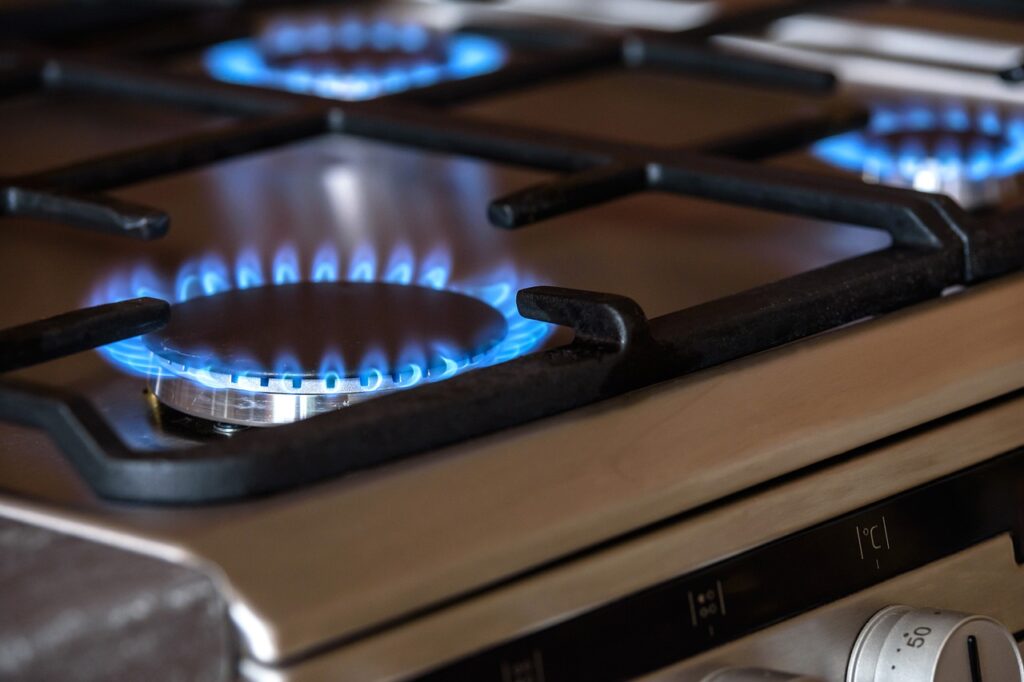As energy prices fluctuate and home efficiency becomes more important than ever, many homeowners are choosing to switch from electric to gas appliances. Gas conversion is a practical step toward improving energy efficiency, cutting utility bills, and enhancing the performance of essential home systems. Whether you’re renovating your kitchen or upgrading heating systems, understanding the long-term advantages of gas can help you make a smart, future-ready investment.

Lower Energy Costs Over Time
One of the most immediate and noticeable benefits of switching to gas appliances is the reduction in energy bills. Natural gas is often more affordable than electricity, especially in areas with high electric rates. Over time, this translates to significant savings, particularly for high-usage appliances like water heaters, dryers, and ranges.
Here’s how gas appliances can reduce your monthly energy costs:
- Efficient heating output: Gas furnaces and water heaters provide faster, more direct heating than electric models.
- Lower fuel cost: Natural gas prices tend to remain more stable and economical compared to electricity.
- On-demand performance: Gas appliances heat up quickly and don’t rely on long power cycles, reducing energy consumption.
While the initial gas conversion may require an upfront investment, the operational savings often offset these costs within a few years.
Enhanced Performance and Reliability
Gas appliances are known for their responsive and consistent performance. From instant heat on a cooktop to reliable warmth during cold snaps, gas systems provide a level of control and dependability that electric options often lack.
Key performance advantages include:
- Faster heating: Gas ranges and ovens reach cooking temperatures quickly, making meal prep more efficient.
- Even heat distribution: Gas dryers and heaters provide uniform warmth, reducing wear on fabrics and improving indoor comfort.
- No reliance on electricity: Many gas appliances can continue operating during power outages, offering peace of mind when the grid fails.
This level of reliability is particularly important in regions that experience winter storms or grid strain. For year-round performance, gas is often the more resilient option.
Long-Term Sustainability and Environmental Impact
Natural gas burns cleaner than other fossil fuels, producing fewer greenhouse gases per unit of energy compared to coal or oil. For homeowners interested in reducing their carbon footprint without sacrificing comfort or convenience, gas conversion is a step in the right direction.
Gas appliances also offer:
- Improved energy efficiency ratings: Many modern gas systems meet or exceed ENERGY STAR® standards.
- Fewer emissions per use: Gas water heaters and furnaces emit less carbon dioxide than electric alternatives powered by coal-based electricity.
- Reduced demand on electrical grids: Especially helpful during peak energy seasons when utilities are strained.
Of course, proper inspection and upkeep are key to maximizing efficiency. Following a seasonal gas appliance inspection checklist ensures your systems are operating safely and optimally year after year.
Maintenance Advantages and Cost Control
Compared to electric appliances, gas models often have longer lifespans and lower long-term maintenance needs. When installed and maintained by professionals, gas systems experience fewer breakdowns and require less intensive servicing.
Some maintenance-related benefits include:
- Fewer electrical components that can fail or short-circuit
- Simple pilot ignition or electric-start options with fewer mechanical issues
- Access to preventative strategies that minimize wear and tear
Routine care is still essential, especially for appliances used daily. Smart homeowners take advantage of easy maintenance tips that help prevent unexpected repair bills and extend the life of their investment.
When to Consider a Professional Gas Conversion
While the benefits of switching to gas are clear, the actual conversion process should always be handled by licensed professionals. Improper installation can result in gas leaks, ventilation problems, or code violations that pose serious safety hazards. A certified technician ensures the job is completed safely and in full compliance with local building codes.
Professional gas conversion is especially recommended if:
- You’re upgrading multiple appliances during a renovation
- Your property doesn’t currently have gas infrastructure
- You’re replacing aging electric systems with high-efficiency gas alternatives
- You want to ensure long-term safety and performance through expert installation
A professional can also help assess whether partial or full conversion makes the most sense for your budget and energy goals.
Ready to Make the Switch?
Upgrading to gas appliances is a smart move for homeowners who value efficiency, performance, and savings. When you’re ready to explore a safe and effective gas conversion, contact The Gas Connection for expert service tailored to your home’s needs.